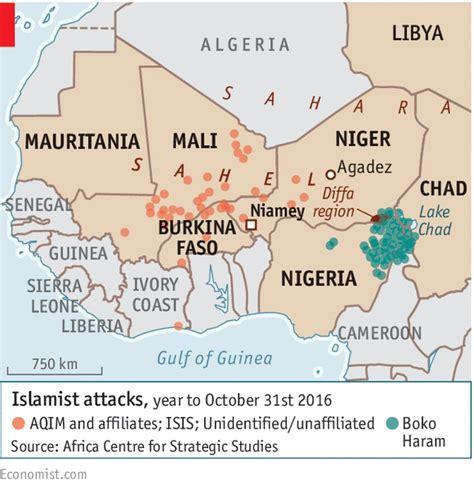
Extremist Groups Spread in West Africa
Islamist groups linked to al-Qaida and the Islamic State have been spreading across Africa for years.
The groups came from the large area south of the Sahara Desert called the Sahel. They are spreading into wealthier West African coastal nations like Benin.
Militants once were believed to want to use coastal nations like Benin, Togo and Ghana as bases for attacks on Sahel governments. Now the militant groups are strengthening.
Benin has been the hardest hit. This year it had more than 10 times the number of violent incidents involving Islamists than Togo did. That information comes from the Armed Conflict Location & Event Data Project.
Attacks by militant Islamists, or jihadis, against civilians in Benin went from more than 30 to about 80. The overall number of incidents involving jihadi groups rose by more than 70 percent.
The jihadis’ activity in Benin is mostly in the north of the country. There, they try to recruit people and create division within local populations. Residents of one small town told The Associated Press recently that civilians can no longer move freely.
People in Materi live in fear because of the jihadi threat. The fighters place explosives and carry out kidnappings in the area. They aim to make people lose trust in the government. The government has put in place a curfew and a ban on gatherings.
“I can’t sleep at night, we’re not free to travel, to move,” Materi resident Florence Bati said. “People are too afraid.”
People are being displaced from their homes as attacks increase. Some people fear a humanitarian crisis.
In August, more than 12,000 people were displaced from their homes in the Atacora and neighboring Alibori states. That is an increase from about 5,000 in March, the United Nations said.
The violence is also pushing people from their farms. The U.N. estimates that tens of thousands of people could face hunger.
The government is trying to improve the situation by placing additional security forces along the borders and hiring more soldiers. Local people in the north say they have seen increases in soldiers but say the army is underequipped and is sometimes late when answering attacks.
Neighboring Burkina Faso, Niger and Mali, are being overrun by violence. The nations ousted French troops after the militaries there seized power. But Benin is still open to help from its former colonial power, which left in 1960. The French do not have a permanent base in the country. At Benin’s request, however, French troops can take part in training programs with Beninese soldiers, a French military spokesman said.
People in the north told AP that Benin’s government is also trying to hide the level of the crisis. The government has limited freedom of speech and arrested reporters who cover insecurity.
Local officials have said the problem does not go beyond the border with Burkina Faso.
“There is no terrorist, no movement, no organization, no group that has settled or tried to settle in our department,” said Robert Wimbo Kassa, the mayor of Materi.
Benin is an agricultural nation of 13 million people. It has invested billions of dollars in culture and tourism. It is also building a $1.5 billion industrial area outside of the city of Cotonou aimed at creating 300,000 jobs by 2030.
The lack of information has left people in other parts of the country unaware of the security problems in the north. People in Cotonou said they did not know about the jihadi problem. They did not believe the news or said that it was a problem limited to neighboring countries.
Rights groups say the government is attempting to control information, while arresting people believed to be working with the jihadis. The groups say the government is pushing people into the militants’ hands.
Bertin Assogba is with Durable and Develop Reference, a local aid and human rights group.
“The jihadis live with the populations, the citizens know them, but they refuse to denounce them because the government doesn’t encourage people to do so,” he said.
Source » voanews.com





